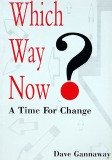

Expectancy Theory of Motivation
Written by Dave Gannaway Expectancy theory of motivation was first proposed by Victor Vroom of Yale School of Motivation. In it he explains the processes that individuals undergo to make choices. This is unlike Maslow’s Theory of Motivation where he describes his Hierarchy of Needs - the levels a person striving to achieve self actualization, or the individual’s maximum potential, must pass through, and satisfy, before being psychologically free to move on.
The Vroom theory of motivation predicts that employees of organizations are motivated by a different criteria. He states that the employees will be motivated when they believe that putting more effort into their work will yield better job performance. Then, better job performance will lead to rewards from the company, such as increased benefits and salary. This, it is predicted, is followed by company rewards that are valued by the employee in question.
Vroom’s theory emphasizes the needs for the company or organization to structure rewards directly to performance and to be sure that the rewards offered are those deserved and wanted by the employee in question.
It also emphasizes that the interest of the company be in alignment with the employees wants. In exchange, the individual would be expected to exercise certain behaviors and meet organizational goals.
Now, as a businessman, I would interpret this quite simply as you, the employee, produce what is required by the company and I, the company, in return will reward you with the things you want. Now, I could be wrong, but that sounds a little too obvious to me! And for companies to tailor the reward schemes, bonuses or such to every individual is not a very practical nor workable idea. Each individual’s needs are different, some greater than other. How would one person with modest needs feel when someone doing the same work, whose needs are greater, received greater rewards?
You May Also Enjoy These Related Articles: Expectancy Theory of Motivation Part 2 Maslow's Theory of Motivation Employee Motivation Return to Home Page from Expectancy Theory of Motivation |
Recommended
Motivational
Books
Read Details
Join Our
Motivational
Newsletter!



























